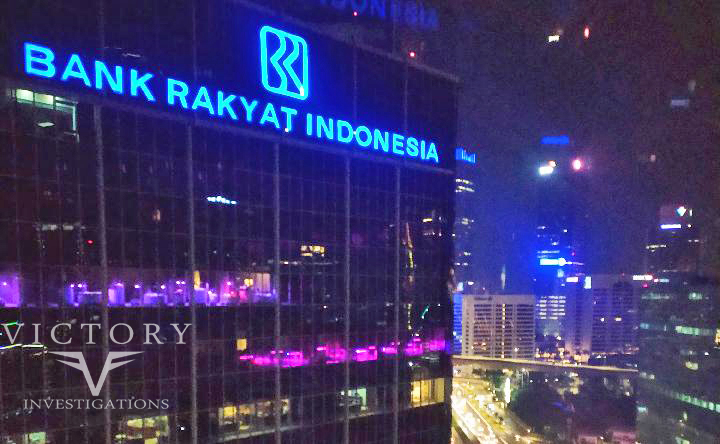
The Anatomy of the Bank BRI Cyber Scams
The modus operandi behind these cyber scams is alarmingly simple yet effective. Fraudsters have been employing a combination of phishing emails, malicious websites, and even SMS messages to trick Bank BRI customers into revealing their login credentials and one-time passwords. Once the criminals gain access to an account, they quickly transfer the funds to other accounts under their control, leaving the rightful owner financially devastated.
What makes these attacks particularly insidious is the level of sophistication employed by the cybercriminals. They often impersonate legitimate Bank BRI personnel, exploiting the trust and familiarity customers have with their financial institution. The scammers’ messages may even include convincing branding and language, further luring victims into a false sense of security.
Inadequate Cybersecurity Measures in Indonesia
The surge in Bank BRI cyber scams can be directly attributed to the country’s comparatively lax cybersecurity standards and protections for consumers. Indonesia has been slow to implement robust digital security frameworks, leaving its financial institutions and citizens vulnerable to the increasing threats posed by cybercrime.
Unlike the United States, where stringent regulations such as the Gramm-Leach-Bliley Act and the FFIEC Cybersecurity Assessment Tool have mandated heightened security measures for banks, Indonesia’s cybersecurity regulations remain fragmented and under enforced. This regulatory gap has allowed cybercriminals to exploit vulnerabilities in the country’s banking infrastructure with relative ease.
Compounding the problem is the limited availability of advanced cybersecurity technologies and the shortage of skilled professionals in the field. Many Indonesian banks, including Bank BRI, have been slow to invest in cutting-edge security solutions, such as multi-factor authentication, real-time fraud monitoring, and sophisticated data encryption.
The Stark Contrast with Cybersecurity in the USA
In contrast, the United States has made significant strides in safeguarding its financial sector against cyber threats. The implementation of robust regulations, coupled with heavy investments in cybersecurity technology and personnel, has helped to create a more secure environment for American banking customers.
The Gramm-Leach-Bliley Act, for instance, mandates that financial institutions implement comprehensive data protection measures, including the use of advanced encryption and access controls. The FFIEC Cybersecurity Assessment Tool further requires banks to regularly evaluate their cybersecurity posture and address any identified vulnerabilities.
Moreover, the US banking industry has been at the forefront of adopting innovative security solutions, such as biometric authentication, behavioral analytics, and artificial intelligence-powered fraud detection. These technologies have proven effective in thwarting sophisticated cyber attacks and safeguarding customer accounts.
The Urgent Need for Cybersecurity Reform in Indonesia
The recent spate of cyber scams targeting Bank BRI accounts has underscored the pressing need for Indonesia to overhaul its approach to financial sector cybersecurity. Policymakers and regulators must act swiftly to implement stringent security standards, mandate the use of cutting-edge technologies, and ensure robust enforcement measures are in place.
“Banks are targets because banks are where the money is,” BRI’s head of information Muharto, who like many Indonesians goes by only one name, said at a forum in Jakarta in June.
Additionally, banks in Indonesia, including Bank BRI, must prioritize cybersecurity as a strategic imperative. Increased investment in security solutions, enhanced customer education campaigns, and the recruitment of skilled cybersecurity professionals will be crucial in mitigating the growing threat of cyber attacks.
Failure to address these vulnerabilities could have far-reaching consequences, not only for individual bank customers but also for Indonesia’s entire financial system. The country’s economic stability and the public’s trust in its banking institutions are at stake, making cybersecurity reform an urgent national priority. As the world becomes increasingly digitized, the contrast between Indonesia’s and the USA’s approaches to financial sector cybersecurity highlights the critical importance of proactive, comprehensive, and well-enforced security measures. By learning from the successes of the US banking industry, Indonesia can take decisive steps to safeguard its citizens’ hard-earned savings and secure the future of its financial ecosystem.
Digital Detectives At Victory Investigations
As Digital Detectives, Victory’s private investigators are experienced in discovering spyware, malware, surreptitious monitoring, and sometimes intrusion. A Digital Detective is a specialized investigator that has skills in ethical hacking (including social engineering) and digital forensics. With these specialized skill sets, these detectives examine computers, cell phones, tablets, servers and more for unwanted and unwelcomed spying software and potential “breadcrumbs” or digital footprints left behind be a perpetrator or attacker. Digital Forensics can uncover vital evidence artifacts that would normally go undetected by the user. Spyware and malware are designed to be transparent to the user, so that they can do their dirty work behind the scenes.





Speak Your Mind